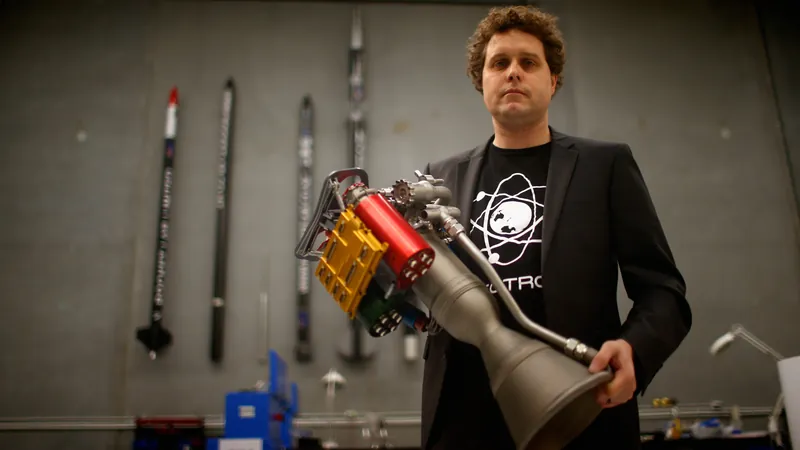
Rocket Lab's Bold Vision: Mars, Venus, and Beyond!
2025-09-22
Author: John Tan
Rocket Lab Eyes Mars Sample Return Missions
Rocket Lab is setting its sights on an ambitious goal: returning samples from Mars, a mission that has gained new urgency following NASA's recent discovery of what could be signs of life on the Red Planet. CEO Peter Beck, a self-proclaimed planetary science enthusiast, is excited about the potential of these Martian samples, discovered by NASA's Perseverance rover.
The Mars Sample Return Mission: A Race Against Time
NASA's Perseverance, which landed in February 2021, has been collecting Martian rock samples and caching them for future retrieval. The Sample Return mission, originally a collaboration with the European Space Agency (ESA), has faced delays and escalating costs—with projections nearing $11 billion and timelines stretching into the 2040s. It's a situation ripe for innovation, and Beck believes Rocket Lab can streamline the process.
Rocket Lab's Unique Proposition
Rocket Lab has submitted a proposal that retains NASA’s original mission framework but presents a faster, more cost-effective approach. Beck emphasized the importance of a Mars Telecommunications Orbiter (MTO) in their mission architecture, which is crucial for maintaining communication with Earth.
The Future of Interplanetary Communication
Beck envisions the MTO operating in a high orbit above Mars, employing advanced communication technology to link Earth with missions for decades to come. This includes practical innovations like laser communications that could revolutionize bandwidth for data transmission.
Rocket Lab's Ambitious Launch Plans
With a powerful track record—including the rapid success of its Electron rocket—Rocket Lab is gearing up for its next phase: introducing Neutron, a partially reusable medium-lift rocket. Neutron will serve as the backbone for interplanetary missions, targeting launches to Mars and beyond.
Beyond Mars: A Passion for Venus
While Mars captures much of the attention, Beck hasn’t forgotten Venus. He considers Venus a ‘passion project’ and believes its clouds represent one of the best locations to search for extraterrestrial life. He is determined to explore this possibility further, stating, "If it’s possible, it must be done."


 Brasil (PT)
Brasil (PT)
 Canada (EN)
Canada (EN)
 Chile (ES)
Chile (ES)
 Česko (CS)
Česko (CS)
 대한민국 (KO)
대한민국 (KO)
 España (ES)
España (ES)
 France (FR)
France (FR)
 Hong Kong (EN)
Hong Kong (EN)
 Italia (IT)
Italia (IT)
 日本 (JA)
日本 (JA)
 Magyarország (HU)
Magyarország (HU)
 Norge (NO)
Norge (NO)
 Polska (PL)
Polska (PL)
 Schweiz (DE)
Schweiz (DE)
 Singapore (EN)
Singapore (EN)
 Sverige (SV)
Sverige (SV)
 Suomi (FI)
Suomi (FI)
 Türkiye (TR)
Türkiye (TR)
 الإمارات العربية المتحدة (AR)
الإمارات العربية المتحدة (AR)